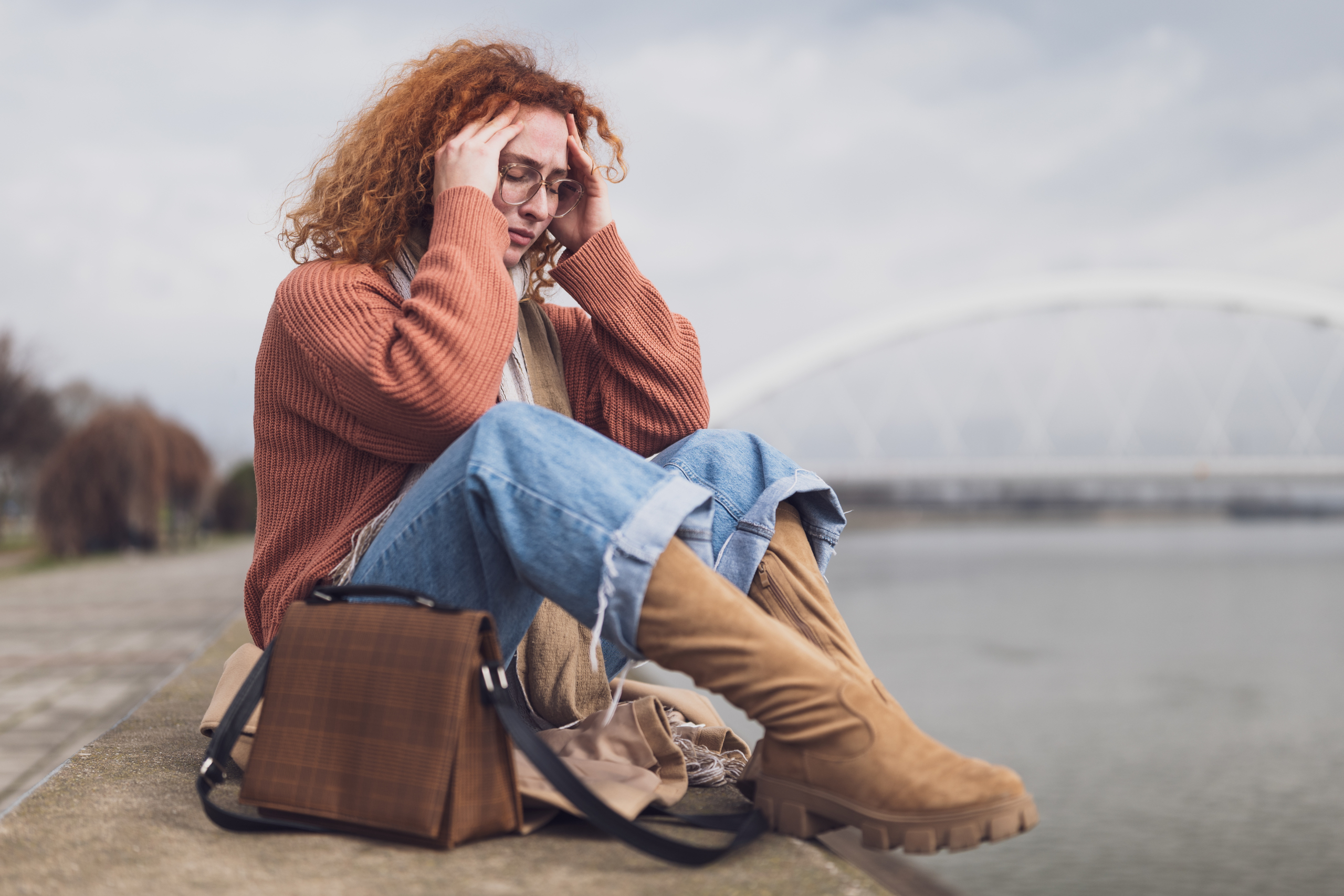对于家庭来说,夏天通常是一个令人兴奋的季节。孩子们放学了,家长们终于可以放暑假了。夏天应该是快乐和放松的时光,对吗?
如果你似乎无法从低落的情绪中走出来,或者感觉压力更大,该怎么办?你是否经常把自己隔离在阴暗凉爽的房间里?当别人都在欢笑、游泳、享受夏日活动带来的美好时光时,你却在 "本该 "享受快乐时光的时候感到失败或不开心。
夏日忧郁症其实并不像看上去那样。它并不是简单的 "乏味",你可以甩掉它,然后尽情享受夏日时光。
实际上,夏季忧郁症是季节性情感障碍的夏季版本。对某些人来说,冬季季节性情感障碍(S.A.D.)实际上是一种基于夏季的季节性情感障碍。它也被称为反向季节性情感障碍或反向 S.A.D.。
虽然很难确定夏季抑郁的确切原因,但对有些人来说,可能是夏季的压力堆积如山,而对其他人来说 夏季抑郁症有其生理原因.
了解什么是夏季 S.A.D.,以及如何才能让自己度过一个更愉快的夏天。
什么是夏季抑郁症?
一听到 S.A.D.或季节性情感障碍,我们就会自动联想到冬季抑郁症。S.A.D. 是一种受季节、天气和光线影响的抑郁症。症状通常出现在秋季和/或初冬,在春季和夏季会有所好转。
值得注意的是,有些人会有相反的经历:他们的抑郁症状始于春季或夏季。症状可能很轻微,但随着季节的变化会变得越来越严重。
夏季抑郁症的病因尚未得到证实。不过,有些人的抑郁症可能是生物因素造成的,而大多数人的抑郁症则可能是由高温、潮湿和日照时间延长引发的。夏季的其他压力因素包括
- 炎热、潮湿和较长的白天会迫使你在黑暗中冬眠以保持凉爽,从而导致与他人隔离,造成情绪低落和抑郁。
- 由于孩子们放学或休假,常规/习惯/日程安排被打乱。
- 作息时间被打乱,导致睡眠和饮食习惯改变。
- 经济拮据,这可能是无法参加暑假或户外活动的原因。
- 由于健康原因无法参加暑期活动,导致孤独、悲伤和寂寞。
- 身体形象问题导致焦虑或逃避参加夏季户外活动。
- 与过去的创伤或夏季发生的事件有关,如失去亲人。
夏季 S.A.D.的症状与冬季抑郁症相似,包括
- 情绪低落和悲伤
- 焦虑增加
- 激动和易怒
- 食欲不振
- 体重减轻或增加
- 睡眠问题,包括失眠
情绪波动、睡眠和食欲改变是很正常的现象。然而,夏季抑郁症的症状更为严重,它会给我们带来巨大的压力和/或妨碍我们的日常工作。如果症状变得强烈和严重,我们的日常生活就会受到更严重的干扰,包括侵入性想法。
如何应对夏季 S.A.D.并获得专业帮助
你能做些什么让自己感觉更好?怎样才能让这个夏天与众不同?当您按照以下提示度过患有反向性 S.A.D.的夏季时,这些都是您可以问自己的好问题。
提前计划
季节性抑郁症有一个小小的好处:你知道它什么时候会来。你可能已经在墙上或手机上挂了日历,并期待着六月的到来。如果您在春季感觉良好,那就想想生活中哪些具体的事情会让您在夏季感到困难。怎样才能避免夏季抑郁?请假的最佳方式是什么?送孩子去夏令营或让他们参加暑期活动是否有助于缓解压力?如果您在春天的时候就未雨绸缪,您就会感觉为夏天做好了更充分的准备。
睡眠
深夜烧烤、度假活动和更长的白天都会促使人们比平时更晚睡觉。睡眠不足是常见的抑郁症诱因。制定一个睡眠时间表并在夏季坚持执行,有助于确保您获得充足的睡眠。只要睡眠充足,您的睡眠计划就能为深夜的娱乐活动留出空间。
坚持体育锻炼
众所周知,经常进行体育锻炼有助于降低抑郁或远离抑郁。即使天气炎热是您患上反向性 S.A.D.的诱因,而且天气太热也不适合您进行常规锻炼,寻找其他保持活跃的方法也有助于保持您的常规生活,抵御夏季抑郁。
您可能需要调整锻炼时间,比如在早上早些时候或晚上晚些时候,因为那时通常比较凉爽。如果您有一个凉爽的地下室,您可能想把健身器材搬到那里。如果当地健身房的年费太贵,可以找一家或一家当地的活动中心(有健身房),提供夏季季节性通行证或会员卡,这样您就可以在有空调的环境中坚持锻炼了。
不要过度节食和健身
如果去年的泳衣到六月还不合身,请不要为了穿上它而强迫自己进行极端的节食和锻炼。你更有可能因此而痛苦和焦虑。马上尝试限制饮食意味着你可能无法坚持下去,而失败会让你感到士气低落,加重你的夏日抑郁。适量饮食和合理运动将有助于保持平衡、健康,并希望能让你更快乐。
保护自己
您的需求是什么?如果你觉得不适合举办你一直举办的活动,也许今年你可以退一步。不要为了不辜负别人的期望和传统,而冒着把自己推向夏季抑郁症的风险。
思考原因;找出触发因素
也许每年夏天,您都会在抑郁中挣扎。有什么原因吗?夏天是否会让你联想到过去的困难或创伤:失恋或亲近的人去世?您可能在潜意识中将夏天与悲伤联系在一起,而这种联系会在您每个抑郁的夏天都变得更加强烈。如果您与夏天有不愉快的联系,那么弄清楚这一点并找出引发这种悲伤的原因,有助于打破这种恶性循环。
仔细规划假期
在为一年一度的暑假装上露营装备之前,先问问自己:这是在履行义务,还是你真正想要的?去度假你会开心吗?还是你的财务状况会受到影响,给你带来压力,导致你工作落后?
考虑另一种方式。与其放一整个星期的假,不如考虑在整个夏天放几个长周末。"宅度假 "会让你更放松吗?不要让自己陷入一个没有假期感觉的假期。
寻求专业帮助
如果你觉得自己持续出现抑郁或抑郁症状,无论一年中的什么时候,这都是一个重要的信号,是时候寻求专业帮助了。我们霍普伍兹的员工可以为您提供帮助,无论您是需要找人倾诉,还是需要帮助您找到并摆脱悲伤的循环。从八月开始,我们将提供新的 TheraCamp 计划 如果您喜欢大自然,这些建议可能会对您有所帮助,非常值得考虑。
我们坚持认为,您不要对抑郁症状掉以轻心,也不要认为它们会自行缓解而等待。有时,最初的夏季抑郁症会转变为持续时间较长的严重慢性抑郁症。即使您发现自己的抑郁症在九月得到缓解,也没有理由在六月就忽视它。暂时的抑郁仍然是抑郁,我们仍然不希望任何人独自经历它。
如果您对反向季节性情感障碍、任何评估或我们提供的治疗服务有任何问题或疑虑,请联系我们、 立即联系我们 或 预约 30 分钟免费咨询.









 通过
通过